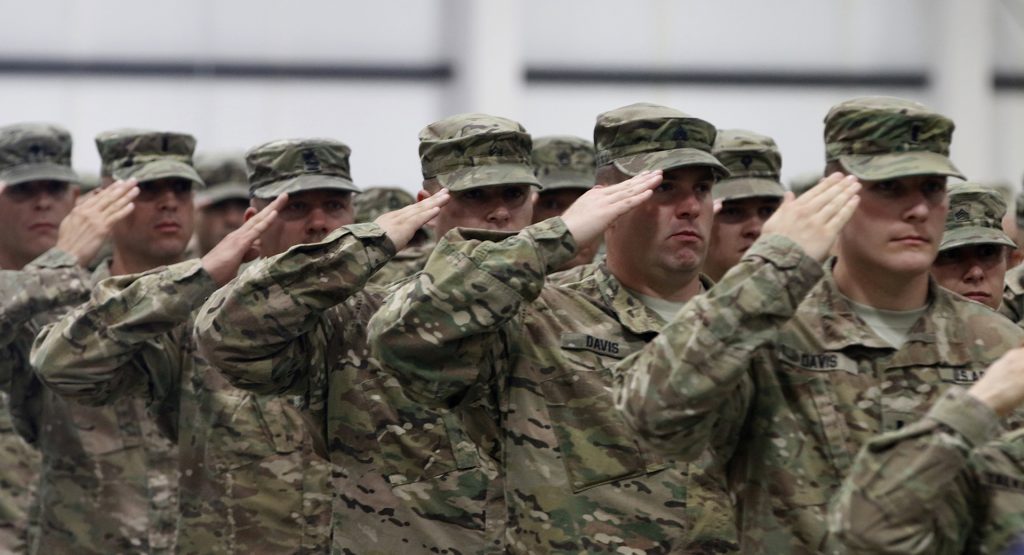Up to 700 members of the U.S. National Guard are gearing up for a potential showdown with frustrated American truckers as Washington D.C. braces itself for a similar protest to the one that crippled Ottowa, Canada.
Defense Secretary Lloyd Austin approved a request from the District of Columbia government and the U.S. Capitol police for 700 unarmed troops who will be stationed at traffic posts 24 hours a day from Saturday, February 26 until March 7, along with 50 large tactical vehicles, to ensure the free flow of traffic.
The move comes as around 25 convoys prepare to converge on Washington in a protest against vaccine mandates, pandemic-related restrictions and other concerns, including rising fuel costs. Should they make it that far, their arrival could coincide with President Joe Biden’s State of the Union address on March 1.
Bob Bolus, a Pennsylvania truck driver leading a convoy from Pennsylvania, told NBC4-TV in Washington that he has backed off immediate plans to gridlock the Capital Beltway, the 64-mile road that circles the District of Columbia.
Related: U.S.-Canada Ambassador Bridge Reopens As Police Clear Protesters
“We’re not shutting the traffic down today,” Bolus said, but warned things could change. “If we don’t have a resolution from the government, to the rights that they’re taking from us, I will predict in the future it will get shut down.”
Other protesters targeting D.C are traveling form much further afield. USA Today reports that The People’s Convoy left California on Wednesday and intends to pick up other truckers on its way to a March 5 rendezvous on the Capital Beltway. The group has raised almost $500,000 (£369,000) through online crowd-sourcing to help the truckers make their way to Washington, though it claims to have no plans to enter the city itself.
U.S. officials will be keen not to find themselves in the same situation as their Canadian counterparts, who struggled for days to deal with protesters that gridlocked Ottowa and blockaded the Ambassador Bridge between Detroit and Windsor. The Canadian auto industry puts the immediate cost of that restriction as high as $1 billion, but some experts suggest the figure could climb far higher if the saga results in potential investors deciding Canada is no longer a safe bet for their cash.




